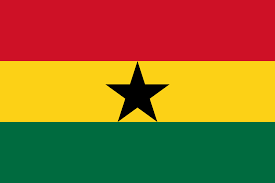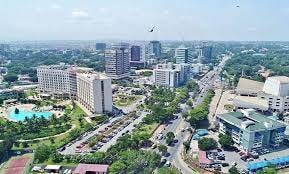Welcome to another essay from Civic Way’s series on global democracies. The author, Bruce Anderson, is an advisor to Civic Way. Bruce has an MBA and over 45 years of management experience with private entities like Price Waterhouse and public sector entities like the Cleveland Public Schools. He has managed projects for numerous other agencies, including colleges, schools, cities and counties. Bruce also served in the Peace Corps.
The world’s democracies may come in many flavors, but they face similar challenges.
Some have strong central governments while others have federated structures. Some have an independent chief executive and some a parliamentary form. To meet the inherent challenges of democracies, many find it necessary to seek ways to refine and preserve their democracies.
Some variations in democracies are embodied in a nation’s constitution and laws. Others spring from historical, cultural or demographic factors. Learning about different ideas, and the risks they were intended to address, can yield promising ideas for improving our own democracy.
An Introduction to Ghana
In 1957, Ghana was the first Sub-Saharan nation to gain independence from colonial rulers (the United Kingdom). In 1960, it adopted a constitution and became a representative republic. For over 30 years, the nation witnessed periodic coups and intermittent periods of civil unrest and military rule. Since 1992, when it adopted a new constitution (the Fourth Republic), Ghana has maintained a relatively stable (if flawed) democracy even as it overcame some disputed presidential elections.
Ghana has over 32 million people living on over 92,000 square miles (the size of Wyoming). It borders Togo, Burkina Faso, Corte de Voire and the Atlantic Ocean (the Gold Coast). It has some impressive natural resources, including gold (it is Africa's largest gold producer), diamonds and bauxite, as well as promising oil and natural gas reserves. With an estimated Gross Domestic Product of about 74 billion, Ghana enjoys West Africa’s highest per capita GDP, but still one of the world’s smaller economies.
Ghana’s Government Structure
Ghana’s national government has three branches:
Executive branch – The President is the nation’s chief executive officer, appointing (subject to legislative approval) and managing 20 to 25 ministry directors, and controlling many federal, regional and local patronage jobs. The President also appoints a 25-member Council of State, an advisory body that may formulate legislative initiatives and review legislation.
Legislative branch – The Parliament is a unicameral body with 275 members. It selects the Speaker by majority vote (the Speaker need not be an elected member). The current Speaker is not a member of the President’s Party which holds a narrow one-seat majority (138 to 137).
Judicial branch – There are two levels, the superior courts (i.e., Supreme Court, Court of Appeals and High Court) and lower courts. The judiciary branch also includes the National House of Chiefs, a group of tribal chiefs, invested with judicial authority to resolve certain community matters (e.g., property disputes and divorce cases).
Ghana is divided into sixteen (16) regions. While each region has its own legislative body—the District Assemblies—the President appoints regional leaders. In turn, the regional leaders may recommend Council of State members. District Assembly members, 70 percent of whom are directly elected by voters and 30 percent of whom are appointed by the President, have relatively little power.
Within the regions, there are 280 Assemblies, including Metropolitan (for areas with at least 250,000 residents), Municipalities (at least 90,000 residents) and Districts. In addition, there are about 16,000
sub-districts (e.g., urban districts, towns, areas and zones). Local governments are funded by federal revenues (e.g., grants) and local revenues (e.g., fines, licenses, rents, fees and service charges).
An Overview of Ghana’s Democracy
The Democracy Index scores Ghana at 6.50 (down from 6.86 in 2015), placing it among other flawed democracies. Among the 167 nations scored, Ghana is tied for 56th with Hungary—behind Brazil, India and Poland, but ahead of Peru, Singapore and Thailand. Its relatively high rank among African nations masks its low scores in government functionality and civil liberties.
The Freedom House scores Ghana at 80 (on a 100-point Democracy scale), the highest for any country on the African continent. The Freedom House rating was hurt by the perceived discrimination of Ghana’s government against women and LGBT persons. These same concerns about human rights violations were a significant contributing factor in the Economist’s Democracy Index score.
Like the US, Ghana has an entrenched two-party system. While 30 other parties exist, the big two—the New Patriotic Party (NPP) and National Democratic Congress (NDC)—dominate the political landscape. The current President leads the NPP, but the two parties have traded Presidencies and held similar numbers of parliamentary seats in recent election cycles.
Here are some other distinctive features of Ghana’s democracy:
Voting – All citizens aged 18 and older are eligible voters. Turnout is quite high for national elections.
Elections – The parliamentary and presidential elections are held every four years, but local elections are held during off years (staggered). The federal Electoral Commission oversees and monitors the national elections.
Executive branch – The President is elected in a winner-take-all popular vote, possibly in two rounds. In Round 1, multiple candidates appear on the ballot. In Round 2, only the two top vote-getters from Round 1 make the ballot. The Vice President runs with the President.
Legislative branch – A member of Parliament must win at least 50 percent of the vote in his/her district to be elected. There are 275 single-member districts.
Legislative representation – Parliamentary seats are allocated to 16 geographic districts according to population. The Ashanti Region has the most seats (47) and the Northeast Region has the least (six). Per the 2010 census, Ghana’s population was about 51 percent urban and 49 percent rural.
Judicial branch – Superior court vacancies are filled by Presidential appointments and local court vacancies by local authorities.
Term limits – The President serves no more than two consecutive four-year terms. Parliament members have term limits. Supreme Court justices have no mandatory retirement age.
Removal process – The Parliament has the power to impeach the President. The President has the authority to remove any local authorities or judges.
Per the Ghana Center for Democratic Development (CDD-Ghana), Ghanaian politics have become increasingly corroded by dark (and dirty) money. Parliamentary elections have become extremely costly. A major party presidential race now costs an estimated $100 million. The nation’s opaque campaign financing regime (as set forth in the 1992 Constitution and 2000 Political Parties Act 574), coupled with ineffective oversight, has contributed to widespread fraud and influence peddling.
Ghana’s Recent Political Landscape
National elections have become increasingly competitive with shrinking margins of victory.
The 2008 election was very contentious. Before the 2016 election of the current NPP President, the NDC Party controlled the executive and legislative branches. In 2020, the NPP President was narrowly reelected to a second term and the NPP Party lost parliamentary seats, maintaining its one-seat majority only when one "independent" member decided to caucus with the NPP.
Both parties conduct aggressive national election campaigns. Media election coverage has been intense and candidate debate forums plentiful. However, the two-party competition has caused some problems, including illegal campaigning by public officials, unreasonable campaign promises and voter cynicism.
Within the last two years, Ghana replaced its conventional voter registration system (based on birth certificate or prior voter registration) with a biometric identity system. It then re-registered 11.6 million voters of 17.1 million citizens aged 18 and older. Critics of the new system raised concerns about privacy and equipment reliability.
Possible Lessons for the US
Ghana’s democracy has some features which may be worth exploring, especially as we continue to refine the US’ democratic processes. It also offers some cautionary tales. Some highlights:
Parties – Ghana’s two-party system shares similar weaknesses with that of the US. Two-party domination, even if not protected by the constitution, can be a formidable obstacle to measures that could enhance competition (e.g., term limits and proportional allocation of legislative seats). In addition, each major party has periodically funded minor parties to siphon votes from the other major party (even one or two percent of the votes can be pivotal).
Voting – Turnout is higher for national elections than local elections (85 percent for 2008 presidential election and 37 percent for 2010 local elections). However, the national election turnout has been as low as 70 percent in recent years. The biometrics-based voter registration process could increase voter participation but must be accompanied by rigorous controls and continuous monitoring to succeed.
Elections – Separating national and local elections simplifies ballots. Since the national election process is run by a federal agency whose board is appointed by the President—the Electoral Commission—elections could be less credible (e.g., in recent elections, there have been charges that election materials were delayed for political reasons).
Campaign financing – The corrosive effect of money on Ghanian politics provides a cautionary tale for students of the American system.
Executive branch – The President holds significant influence over local government, partly due to the President’s power to appoint and remove local officials. However, few federal revenues are distributed to local governments.
Legislative branch – A 275-member Parliament could be unwieldy for a nation of only 32 million people, but this issue could be offset somewhat by its unicameral structure.
Legislative representation – Using population to allocate parliamentary seats may help ensure fairer representation for urban constituencies but does not address partisan representation.
Judicial branch – The high court is authorized to rule on the constitutionality of legislation as well as Presidential election results when fraud has been alleged. The National House of Chiefs provides an interesting way to resolve community disputes and enhance the credibility of those decisions.
Term limits – Like the US, Ghana has a two-term limit for the President and no mandatory retirement ages for justices. Parliament members have term limits.
Removal process – While Parliament has the power to impeach the President, it has not exercised that power since 1992. The President’s power to remove local officials grants significant (if not excessive) power to national government.
We cannot perfect our union without perfecting our democracy. This will require us to not only learn from our own successes and setbacks, but the feats and failures of other nations. Reviewing the successes of other nations and the barriers they overcame will help us strengthen our democracy.





I have really enjoyed the series on democracy. Not only is it informative but interesting. It would be a challenge to compare US democracy with Russia's form of government.